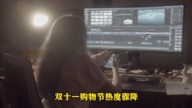【新唐人2011年5月4日讯】今年爆发的阿拉伯世界民主革命,是一次社会底层和中产阶级的运动。西方的舆论界广泛认为,“中产阶级”有着反叛现有政权的革新精神,是自由、民主建设的重大动力。可是,这种西方的学说是否适合于中国的现状呢?中国的中产阶级是否能成为民主运动的主要推动力量?请看专家的分析。
德国《法兰克福汇报》最近刊登了一篇题为《消费者不造反》的文章。文章认为,中国的中产阶层虽然迅速增长,作用却不同于欧美历史上的中产阶层,他们满足于享受富裕,缺乏政治诉求,这样对北京政权有利。
文章说,中国的群体性冲突大都是被剥夺财产、环境危机、物价上涨或者工资冲突,主要涉及农民、农民工,很少涉及城市中产阶层。
西方的社会学家和政治学家们都很关心:中国的中产阶层追求什么目标?是否会在政治上有所表现呢?
中国问题专家程晓农提出,西方社会的中产阶级是在自由经济中自然形成的,与中国的中产阶级来源不同。
程晓农:“今天的中国,中产阶级就是两部分,共产党的各级干部,再就是依靠共产党做生意的人。这样的人发了财,他们想的第一件事是入党,第二件事是当政协委员、当人大代表,戴上个“红帽子”,你认为这些热衷于戴上“红帽子”的商人真的关心民主自由?从这个道理上讲,中国的中产阶级完全是共产党养出来的。”
程晓农还指出,中国的知识份子也可以被称为中产阶级,但大多数的知识份子也是靠依附共产党而活的。
程晓农:“你几时看到有知识份子在敢于批评政府的?有少数那么几个能够有自己的独立立场,不是被打压,就是被批判,再不然被赶走了。所以,现在知识份子在中国也不是能够发挥作用的、相对独立的社会群体,他们现在基本上是靠中国共产党赏饭吃的。”
今年年初,中国社科院对外发布说,目前中国中产阶层的规模约为总人口的23%左右。但这个数据遭到广泛质疑。
杭州民主法律顾问陈树庆:“在我们国内很多白领,绝大多数白领,除了政府机关的以外,尤其是公司里的,包括管理人员、文职人员,我认为,他的身份看上去是中产阶级,实际上他自己的财富是没有资格来说是中产阶级的。“债奴”的生活,危机感很强。”
《消费者不造反》这篇文章写道:找工作,买房,结婚,照料父母,期待这些疲于奔命的中产阶层去解救国家,也许是过分的要求。
对于依附体制存在的部分中产阶级,比如国家机关以及事业单位的工作人员,陈树庆指出,他们内心深处并没有对民主、法制、人权的要求和愿望,喊口号也是赶赶时髦、发发牢骚而已。所以,他认为,中国中产阶级追究公平正义、民主自由的力量现在来说并不强大。
那么,是什么造成了中国中产阶层与西方的中产阶层有如此大的差异呢?
程晓农和陈树庆一致认为,共产党一开始掌握政权到现在,恐怖和谎言就是它的两大法宝。共产党的洗脑和政治上的高压专制,让所有人都喘不过气来。
对于中国中产阶层最终能否像阿拉伯国家的中产阶层那样,提出民主诉求,成为民主运动的主要力量,程晓农认为,在西方国家发生的事情,目前在中国还不具备发生的条件。
陈树庆则表示,这种状况,随着时间的推移,会渐渐改变。迟早有一天,中国中产阶层会认识到,这个社会制度对每个人的权利、幸福、尊严的重要性,到那时,他们也会变成民主运动的强大力量的。
新唐人记者张丽娜、李静、 萧宇采访报导。
Can China’s Middle-Class Bring Democracy?
The recent revolutions in the Arab world are
lower- and middle-class uprisings.
Western media saw the revolutionary spirit in the
“middle class” as a powerful drive for democracy.
Is this also true for China?
Will China’s middle class become
the force behind democratic movements?
According to Frankfurter Allgemeine Zeitung (FAZ),
though the middle class is growing fast in China,
it is different from its Western counterparts.
China’s middle class chases after wealth,
and lacks political pursuits,
which is beneficial to the Beijing government.
The article says most mass incidents in China
are triggered by environment crises, inflation,
property demolitions, and salary disputes.
They mostly involve peasant and immigrant workers,
and seldom concern urban pollution and middle class.
Western social and political scientists question:
what goals is China’s middle class pursuing?
Will they perform politically?
China expert Cheng Xiaonong believes that
middle class in Western societies formed naturally
in a free economy, which is different from China.
Cheng Xiaonong: “In today’s China,
the middle class consists of two groups:
the various levels of party leaders,
and the business people relying on the party.
Once these people become rich, they want
to join the party and become congress deputies.
Do you think these people who wear “red hats”
would care about freedom and democracy?
In this sense, China’s middle class
is cultivated by the communist party.”
Cheng believes intellectuals in China can also be
considered middle class, but most intellectuals
rely on the Chinese Communist Party (CCP) as well.
Cheng Xiaonong: “When do you see intellectuals
criticizing the government? A few of them, who have
independent opinions, are oppressed or expelled.
The intellectuals in China are a relatively
independent and ineffective group
that lives off the party.”
Chinese Academy of Social Sciences announced
early this year that China’s middle class
constitutes 23% of the population,
a number that has been widely questioned.
Legal council Chen Shuqing: “A lot of white-collars
in China, other than those who work in government
agencies, cannot really be considered middle class,
especially not those who work in corporations in
administrative and clerical positions.
They look like white-collars, but they live as
“debt slaves” under a lot of financial pressure.”
The FAZ article says: “Career, housing, marriage,
and taking care of parents…
It may be too much to expect
the busy middle class to save the country.”
According to Chen, middle class within the system,
such as government agents, do not aspire to
democracy and human rights. They shout slogans
from time to time to vent and be fashionable.
Therefore, China’s middle class is not a strong force
behind the pursuit of democracy and justice.
What is causing the great differences between
Chinese and Western middle classes?
Both Cheng Xiaonong and Chen Shuqing think that
the CCP regime has been ruling with terror and lies.
Its brainwashing and political coercion
is suffocating.
When asked whether China’s middle class can lead
democratic movement like the middle class in the
Arab world, Cheng Xiaonong said China did not have
the conditions necessary for it to happen.
Chen Shuqing believes, however, that the situation
will change with time; and it is a matter of time
until the middle class in China realizes
that the political system is critical
to people’s rights, happiness and dignity.
And then they will also become a powerful force
behind democratic movements.
NTD reporters Zhang Lina, Li Jing and Xiao Yu




























